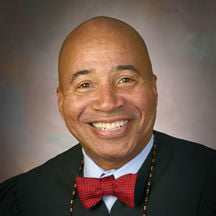Does a VA medical opinion have probative value?

What is the Deep Issue in the Case?
The probative value of a medical opinion in a VA benefits claim derives from the factually accurate, fully articulated, sound reasoning for the conclusion. Nieves-Rodriguez v Peake, 22 Vet. App. 295, 304(2008).
The Board of Veterans Appeals denied service connection for the veterans Obstructive Sleep Apnea (OSA) by relying on a VA medical opinion which did not address (or mention) whether lay evidence of the in-service symptomatology of OSA from the veteran and his wife was competent or credible.
Does the BVA err when it found a medical opinion had a high degree of probative value without clarifying whether the exam was based on an accurate factual premise?
What did the CAVC Decide?
The Court of Appeals for Veterans Claims set aside the Board of Veterans Appeals’ Decision denying service connected VA Benefits for Obstructive Sleep Apnea and remanded the appeal for adequate reasons and bases for further clarification of its decision.
The court's disagreed that a VA medical opinion had a high degree of probative value:
Although the VA examiner stated that he had reviewed all the relevant evidence of record, his rationale focuses on the presence and absence of symptoms as documented in the service treatment records without any discussion of the competent lay statements of Mr. Knowles and his wife that describe the presence of additional in-service symptomatology. Accordingly, it is not clear that the examination was based on an accurate factual premise or, thus, why the Board relied on it.
The Court's analysis was unusually short: it's decision was less than 3 full pages.
Takeaway Points for VSOs and Veterans Disability Lawyers:
1) Proper BVA presentation prevents CAVC appeals
This case is a textbook example of how proper BVA Hearing preparation and presentation by a representative can render an appeal to the Court of Appeals for Veterans Claims unnecessary, and possibly get better results - and VA Benefits - to the veteran sooner.
Though I am not privy to the record in this case, it does not appear that the veteran’s VSO at the BVA raised concerns with the adequacy of the VA Medical Examiner’s opinion.
In my opinion, it never should have gone to the CAVC
When you appear for a client before the Board of Veterans Appeals - in person or by brief - make arguments why negative exams are inadequate or lack competence.
2) Know your record.
The VA examiner wrote - twice - that he had conducted an in person exam.
However, the rest of the evidence mentioned in the briefs suggested that the “exam” was done telephonically.
Had the veteran’s representative at the BVA added a favorable opinion to the record, and pointed out to the BVA Judge that the VA Exam for lacking credibility (factual integrity - or factual integration - with the rest of the record is a key component of legal credibility), the veteran’s OSA would likely have been service-connected by the Board of Veterans Appeals.
3) Learn from the VA's mistakes.
The day is fast approaching when the BVA will start cutting down private medical exams for the same reasons VA exams are being cut down.
Before YOU submit an expert medical opinion, make sure that it is based on a factually accurate predicate that reasons the conclusion made.
This does not mean your expert medical opinions need to be peer reviewed in Harvard Medical Review.
It does mean that a person with only lay medical knowledge should be able to understand why the medical condition is at least as likely as not related to military service.
Case Details
Link to the CAVC Single Judge Decision on the CAVC Website
Link to the BVA Decision on CAVC Website
Deciding Judge: Chief Judge Robert N. Davis (link to bio on CAVC website)
OGC Attorney: Clifton Prince
Veteran Representation at CAVC: Daniel D. Wedemeyer, Esq.
Board of Veterans Appeals Veterans Law Judge: Joy A. McDonald
VA Regional Office: Winston-Salem NC VARO
Veteran's Rep at BVA: North Carolina Department of Veterans Affairs
Date of Decision: October 17, 2017

